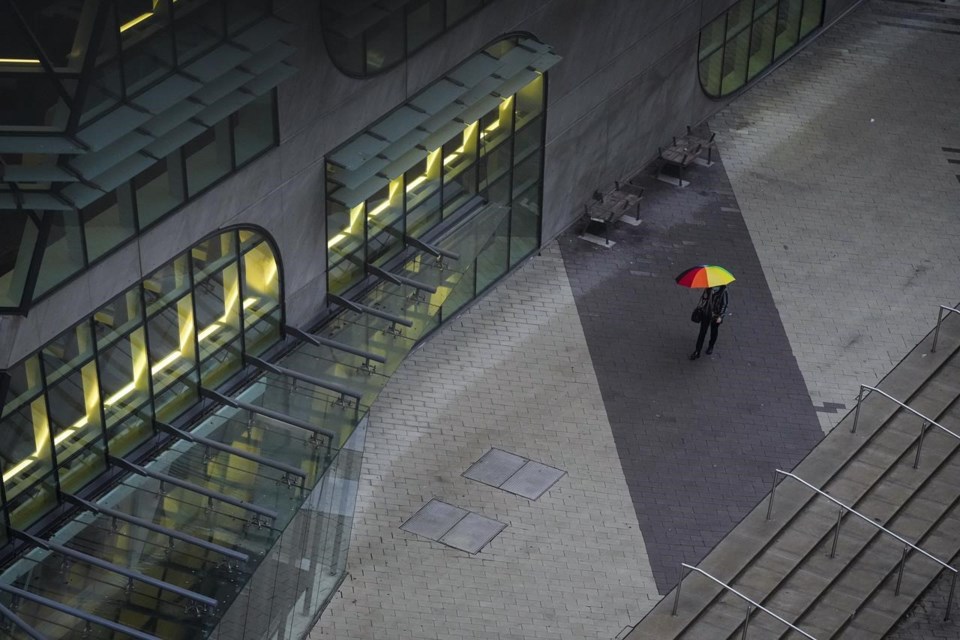VANCOUVER — The first showers since September began falling in parts of Metro Vancouver before dawn, but officials in many coastal communities doubt a series of incoming weather systems will relieve the drought gripping parts of British Columbia.
Environment Canada is calling for just under 10 millimetres of rain in the Fraser Valley and about seven millimetres on parts of eastern Vancouver Island by early Saturday, but says parched areas of the Sunshine Coast and Sechelt could see little more than one millimetre over the same period.
Rain is expected to continue through Saturday and into next week and shishalh Nation Chief Warren Paull anticipates the Sechelt area could receive as much as 35 millimetres from the expected round of systems, but says much more is needed.
Vancouver Island, the inner south coast, including Sechelt, and the entire northeast corner of the province are listed at drought Level 5, the most severe ranking, meaning negative effects are almost certain on everything from the environment to jobs.
Several more B.C. regions had been upgraded to Level 5 drought rating by Friday, including the eastern Pacific Range, a swath of land stretching from north of Whistler to the U.S. border, and the Kettle region of south-central B.C.
Sechelt had received just nine millimetres of rain between early July and Oct. 20, when it can usually expect an average of 200 millimetres, while just eight millimetres had fallen in Chilliwack over the same period, far below the average of 245 millimetres.
Before Friday, the last appreciable rain in Vancouver fell on Sept. 4, while Victoria and Sechelt had previously not had appreciable rain since July 3 and July 6, respectively.
The Sunshine Coast Regional District declared a local state of emergency this week as its main water reservoir fell to critically low levels, and a statement from the district estimated it would need 150 millimetres of rain to completely recharge the watershed and ease restrictions.
Other parts of B.C., including Haida Gwaii, the central coast, the Coldwater River and Nicola areas around the City of Merritt, and the Parsnip and Finlay basins of north-central B.C. are ranked at drought Level 4, and the dry conditions everywhere mean B.C.'s wildfire season drags on.
More than 200 active fires are currently burning, including four suspected human-cased blazes sparked Wednesday and another on Thursday, along with two fires linked to lightning.
Wildfires in the Fraser Valley and Manning Park, as well as several large blazes in Washington State were blamed for sending a thick, hazy blanket over most of the lower half of the province for days, prompting Environment Canada to issue air quality advisories.
IQAir, the organization that posts global air quality ratings, listed Vancouver as having the fourth-worst air quality on the planet Thursday, just behind Seattle, Portland, Ore., and Beijing.
Environment Canada maintained its air quality advisories early Friday but was calling for significant improvement through the day as winds helped clear the smudgy skies.
IQAir had already ranked Vancouver, Portland and Seattle as among the cities with the best air quality by Friday, although its list had moved Beijing's air quality to the dubious distinction of worst in the world.
This report by The Canadian Press was first published Oct. 21, 2022.
The Canadian Press


.png;w=120;h=80;mode=crop)

